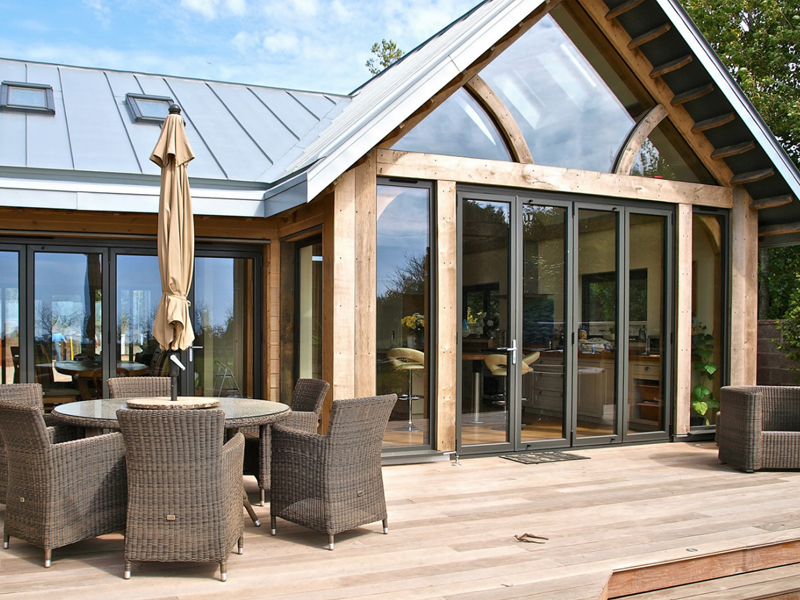
Insulating glass is widely used, because of its excellent sound insulation, heat insulation, heat preservation, anti-condensation and environmental protection characteristics, is widely used in construction, transportation, home appliances, medical and health and other fields. In the field of construction, insulating glass is widely used in residential, restaurants, hotels, office buildings, schools, hospitals, shops and other occasions that need indoor air conditioning, but also used in trains, cars, ships, freezer doors and Windows.
The quality of insulating glass is the key to ensure its performance. In general, the glass thickness of insulating glass should meet the design requirements, usually using 3mm to 12mm float glass or tempered glass. Its appearance should be no visible impurities and foreign bodies, and in the temperature, humidity and other environmental conditions, should keep the interior dry, clean, water permeability should not be more than 0.2g/㎡. At the same time, the insulating glass sealant should be compatible with the glass and surrounding materials, no pollution, solid bonding, no bubbles, no gaps.
In terms of performance, the thermal resistance value of insulating glass should not be less than 1.5, the heat transfer coefficient should not be greater than 2.5W/㎡·K, and the shading coefficient should not be greater than 0.4. The thickness of the air layer should not be less than 9mm, the sound insulation amount should not be less than 30dB, and the low frequency sound insulation amount should not be less than 25dB. Under the action of wind pressure, the insulating glass should not break, and the deflection, vibration speed, deformation and so on are strictly limited.
In addition, depending on the application, the types of insulating glass are also different. Colorless and transparent insulating glass is generally used in ordinary houses, air-conditioned rooms, air-conditioned trains, commercial refrigerators, etc. Colored insulating glass is mainly used in buildings with certain architectural artistic requirements, such as theaters, exhibition halls, banks, etc. Tempered insulating glass and wired insulating glass are mostly used for anti-theft window, glass curtain wall, lighting ceiling, etc. Special insulating glass is based on needs, such as sun-proof insulating glass in tropical areas, and low-radiation insulating glass used in solar energy utilization in cold areas.
The factors affecting the quality of insulating glass mainly include the following aspects:
1. raw material selection
The quality of insulating glass: the performance of the breaking strength of the glass will directly affect the quality and use time of insulating glass. Ordinary flat glass should be avoided, because its transparency and strength are not up to the requirements. Colorless float glass, coated glass, tempered glass, laminated glass, etc., can be used as the original sheet glass for the manufacture of insulating glass, and must meet the corresponding standard requirements, and can be used after passing the inspection.
The quality of sealant: The quality of sealant (such as butyl adhesive and structural adhesive) and the coating process are crucial to the sealing performance of insulating glass. The problem of sealant may lead to quality problems such as condensation and air leakage inside the insulating glass.
The quality of the molecular sieve: the molecular sieve plays the role of absorbing water vapor in the insulating glass, and its quality will directly affect the dryness and service life of the insulating glass. Molecular sieve should avoid long-term contact with air during production, preservation and use to avoid moisture absorption failure.
2. Manufacturing process
Sealing process: The sealing process of insulating glass includes corner treatment, the selection of rubber strips or tapes and gluing. Improper corner treatment or improper selection of rubber strips and tapes may lead to lax sealing, which will affect the quality of insulating glass.
Glass processing: cutting, edging, tempering and hollow processing in the process of glass processing may affect the quality of insulating glass. In particular, manual operation and transportation links are prone to problems such as glass scratches and trademark seal reversals.
Environmental humidity control: When making insulating glass, environmental humidity has an important impact on the hygroscopic effect of molecular sieve and the internal pressure balance of insulating glass. Excessive humidity may lead to hygroscopic saturation of molecular sieve, which will affect the dryness and sealing performance of insulating glass.
3. testing and quality control
Air tightness detection: check the sealing performance of insulating glass to prevent gas leakage and ensure the heat insulation effect of glass.
Thermal insulation testing: Evaluate the thermal conductivity of insulating glass to ensure its thermal performance under different climatic conditions.
Wind pressure resistance test: to ensure that the insulating glass can withstand strong wind pressure, improve the safety of the building.
Mechanical strength testing: test the impact resistance and durability of glass to ensure its safety and stability in use.
In summary, the factors affecting the quality of insulating glass involve raw material selection, production and manufacturing processes, as well as testing and quality control. In order to ensure the quality of insulating glass, it is necessary to strengthen the quality control and detection work from these aspects.
Quality is crucial. Only by ensuring the quality of insulating glass, can it give full play to its sound insulation, heat insulation, heat preservation, anti-condensation and other properties to meet the needs of various applications.